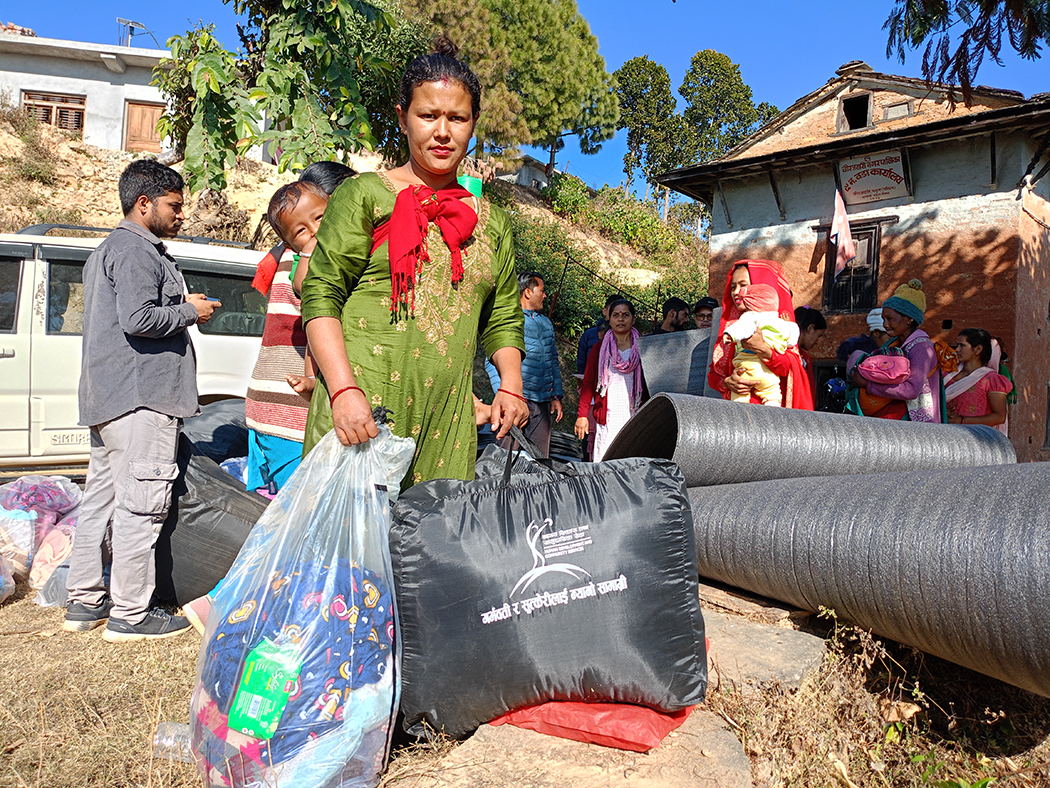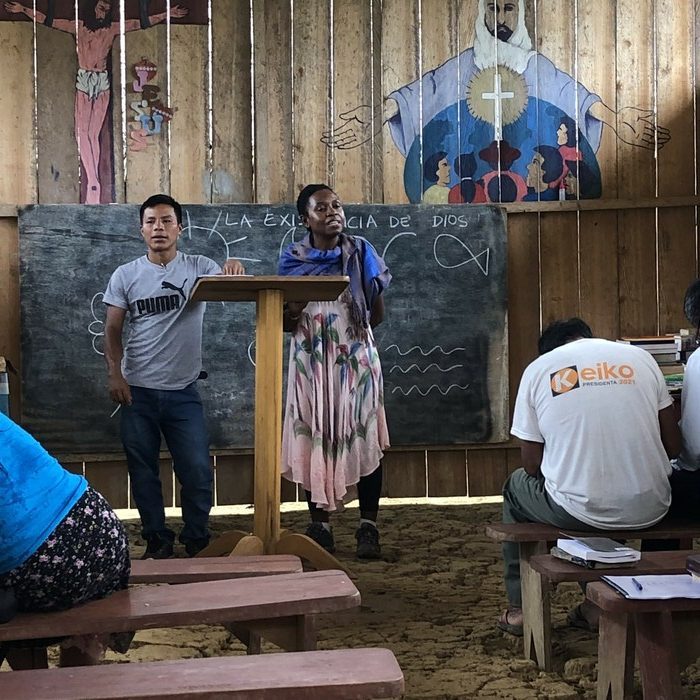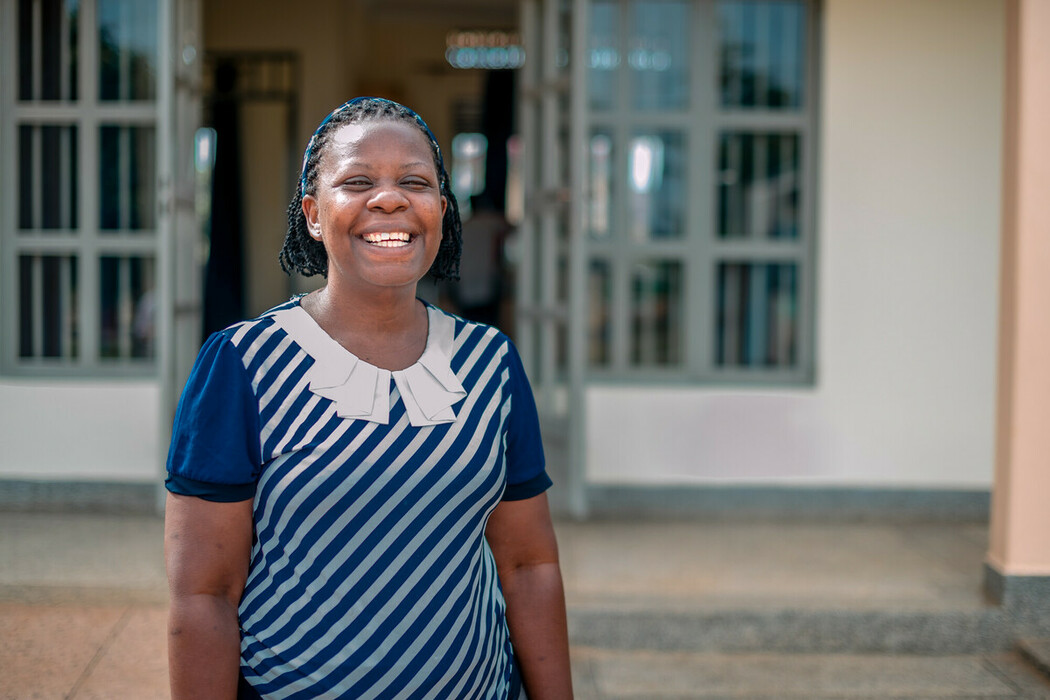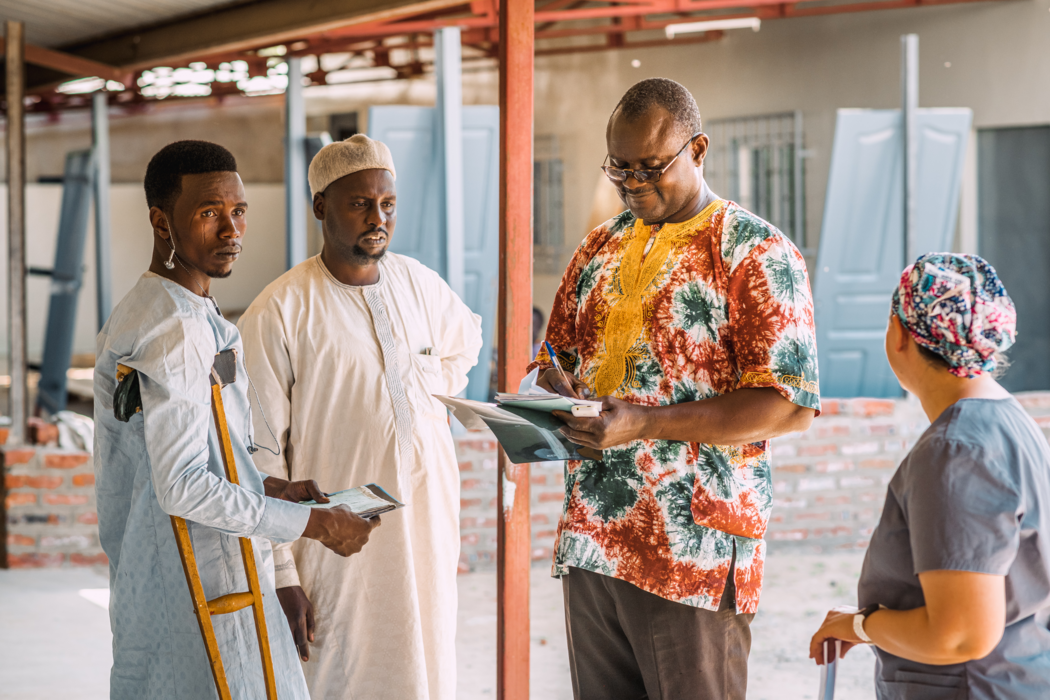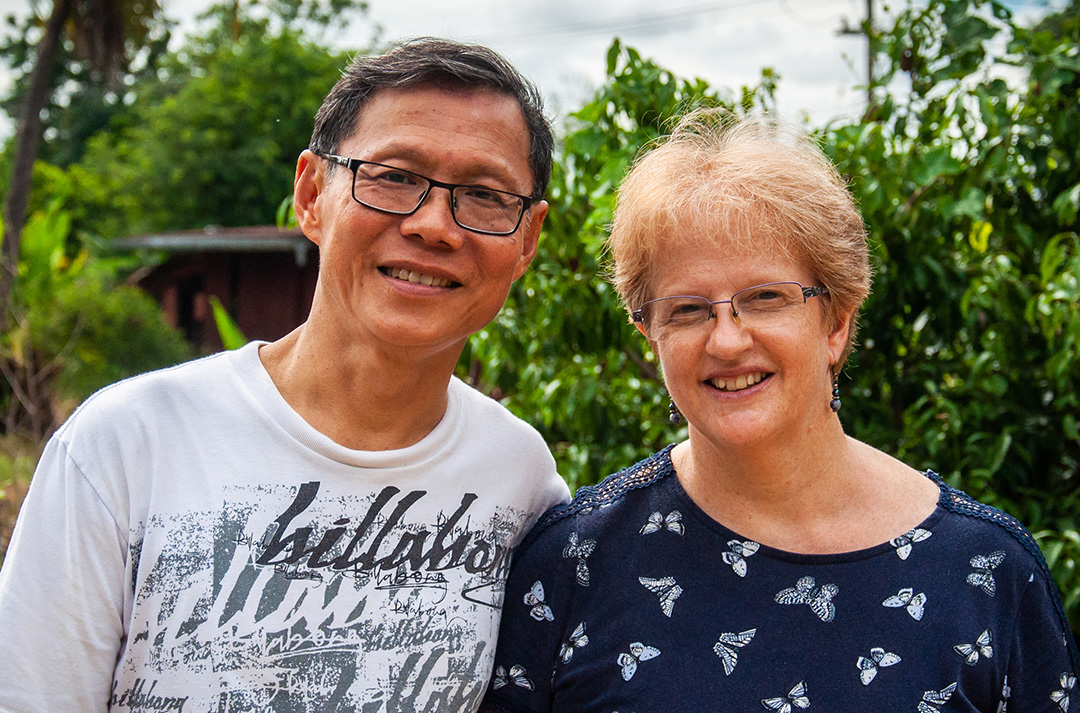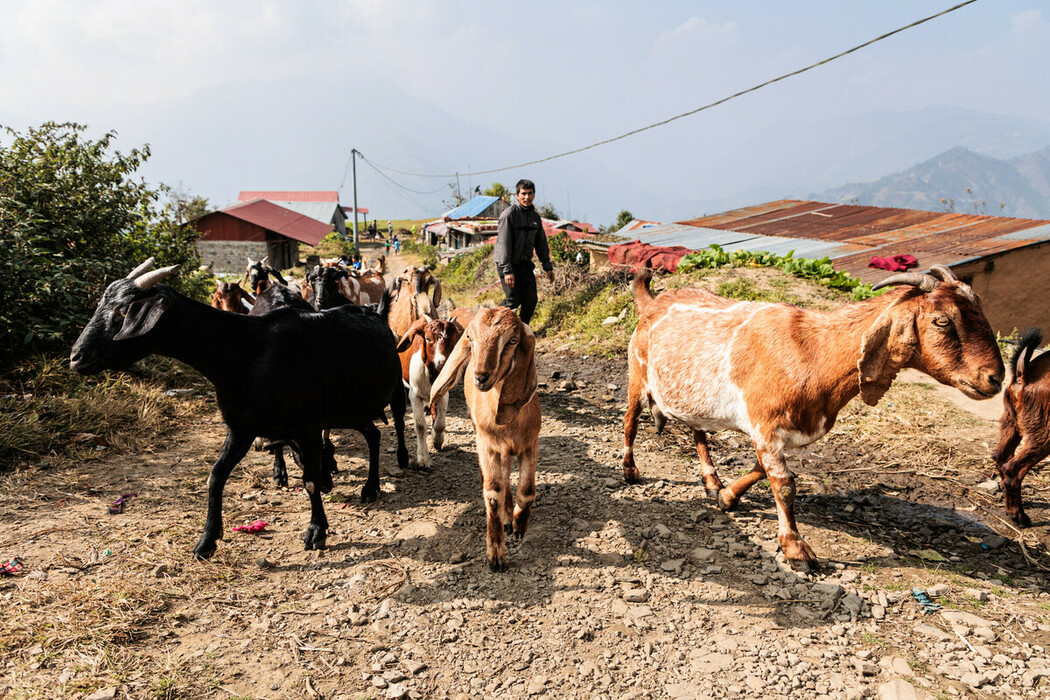Let (climate) justice flow like a river…
Reflections on COP28
Laura-Lee Lovering, BMS World Mission’s Creation Stewardship Co-ordinator, shows us how woman across the world are disproportionately affected by environmental issues – but are also often the ones at the frontline of the climate justice fight. As COP28 begins, read on to hear perspectives on climate change from across the world.
What do you think about climate change? How is it impacting your life? There are many ways in which you might respond to these questions, depending on where you live in the world, your socio-economic status, your political affiliation or your religious inclination. Your response may also be influenced by whether you are a woman or a man. Household surveys from Global North countries over the last ten years have shown that women tend to be slightly more concerned about climate change and more willing to make lifestyle changes than men*. Meanwhile, in the Global South, women grow and produce up to 80 per cent of food for family consumption, and they have the primary responsibility for collecting water and firewood. In addition, women in developing countries are already more vulnerable to undernutrition and have less access to medical services than men**. Environmental degradation and climate change make all of these challenges harder, and the burden falls disproportionately on women.
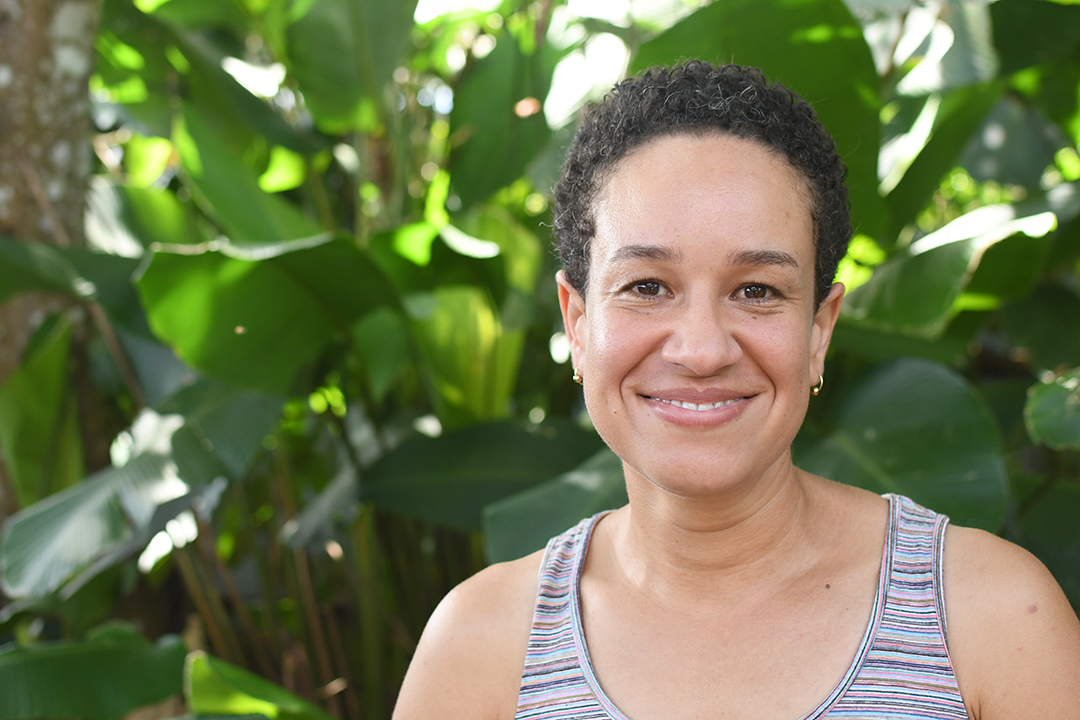
With COP28, the United Nation’s annual conference on climate change, beginning today, we have been asking women around the world about their experience of environmental problems, climate change and their effects.
Susan Blanch Alal, Justice Livelihoods Health (JLH), Uganda
How are environmental problems, including climate change, impacting your local communities, especially women?
Let me tell you about Alice, who’s been supported by JLH in Gulu. Alice says that the impact of climate change causes difficulties for a greater percentage of women than men, especially those living in the city or nearby towns. She shares how difficult it is to get firewood because of deforestation in the area, and confesses that women have been beaten by their husbands for cooking late or for asking for money for charcoal or firewood.
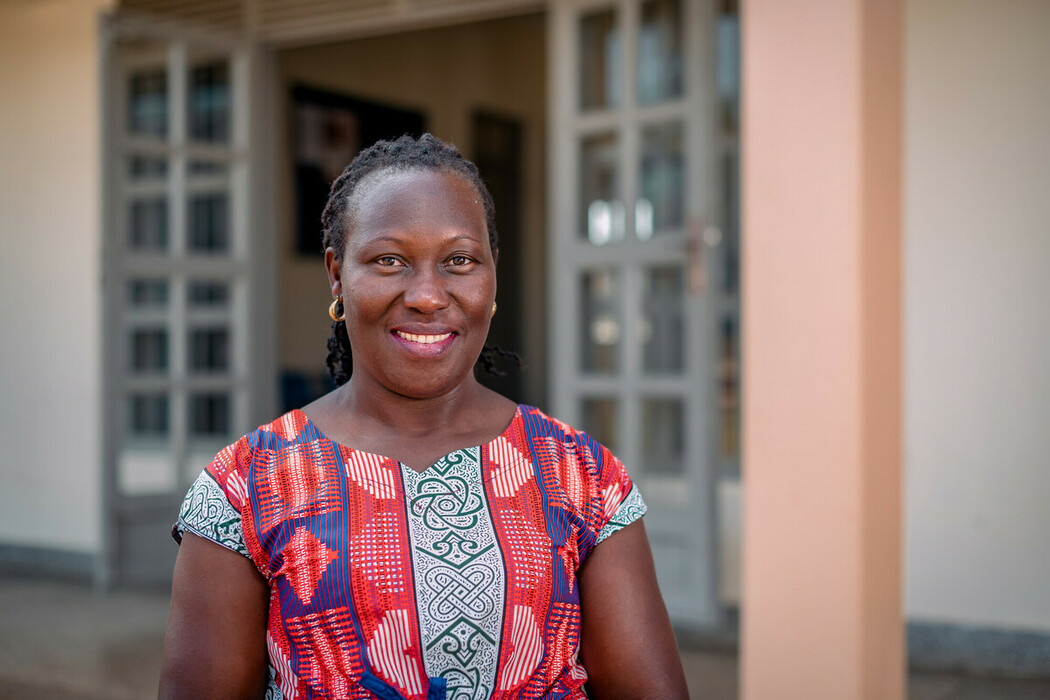
Alice shares that one of the impacts of climate change is also tensions over water in her village. She says, “You will find women competing for water in a nearby borehole, because streams that women used to fetch water from to help with other domestic work have dried up, and women now mainly rely on drilled water”. The borehole water is also controlled, paid for and has hours for opening for community use, and as a result women have fought or been beaten by their husbands because of delays in collecting water. Alice says, “I remember one day when I was beaten by my husband for quarrelling at the borehole site. The lady I quarrelled with is a neighbour and she discussed the issue with her husband who reported the issue to my husband. It was a very bad experience for me and I was pregnant at that time. I imagine how many women have experienced violence due to climate change the way I have.”.
Pray with us
Please remember the wives and mothers in Uganda and around the world who are dependent on firewood and wells for the daily needs of their families, especially as these resources become more difficult to access due to deforestation and climate change. We pray for peace and collaboration in their communities.
Pray for those at risk of domestic violence, exacerbated by the pressures of climate change and poverty. Pray that God’s justice will flow, and that in the face of climate breakdown, people will still be treated with respect and dignity.
We thank God for the work of JLH in coming alongside these women in faith and in practice, helping them plant trees, construct safer stoves and even installing new community wells.
Karen Name: Naw Bah Blute Paw
Thai Name: Khun Mayuree
2nd year student in the Karen Theology Programme, Siloam Bible Institute, Thailand
How are environmental issues affecting you as a young woman and your hopes for the future?
Across Thailand and the world, natural resources and agriculture are decreasing; I see the cutting down of many trees in my home village, and even the water does not seem clean anymore.
Therefore, as a young woman, I feel it is important to preserve what God has created for us. All of us need to do our part to conserve the environment, in the best way possible.
I feel in the future that if we do not look after nature and the environment, it may not exist anymore. This is something that I think and pray about often. The added benefit of looking after the environment is the produce that we grow ourselves, which we can share with others, and it tastes delicious.
Along with my friends and fellow students at Siloam, we are trying to take care of and maintain God’s beautiful creation that he has given to us.
Pray with us
Pray for young people around the world to have hope in God for their futures and to become leaders in their communities who will pave the way in restoring the damage done to God’s creation.
We thank God for the integral training being provided to young people at the Siloam Bible Institute, helping them to see and respond to God’s love for all that he has made.
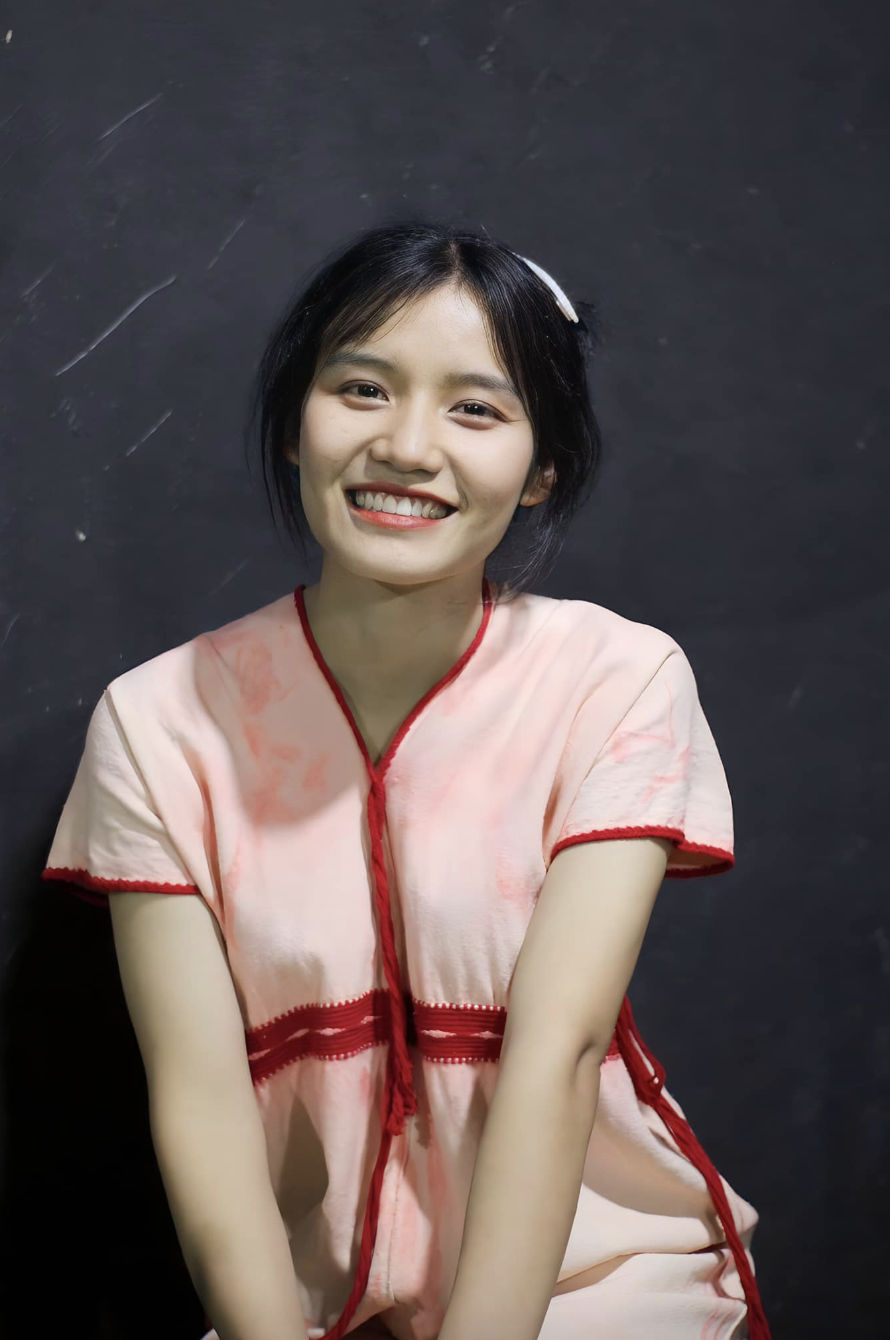
Sahara Mishra, Human Development Community Services, Nepal
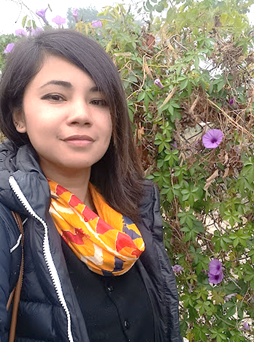
How are environmental problems, including climate change, impacting local communities, especially women?
There are profound and disproportionate impacts of environmental problems, including climate change, on local communities in Nepal, particularly affecting women. Changes in weather patterns, water scarcity and natural disasters have disrupted agricultural cycles, livelihood diversity, health and hygiene. Women, who often play a pivotal role in agriculture, other income-generating work and household management, bear the brunt of these challenges. These environmental crises have increased their workload and exacerbated the existing gender inequalities, as women’s time for education and income-generating activities diminishes, being compelled to [invest more time] in household management.
The weather extremes, especially exposure to heat, are associated with pre-term birth, low birth weight and stillbirth. Additionally, increased natural disasters such as floods and landslides have threatened women’s safety and health, heightening the risks of their displacement, gender-based violence, losing their source of income and making them prone to trafficking and marginalisation within their own communities as well. The impact of the environmental crisis is multifaceted and multidimensional and requires gender-responsive strategies to address all the issues.
Pray with us
Women in the world, irrespective of geographical and territorial boundaries, social status or age, have been affected in many ways by environmental crises. Please join Sahara in praying that God may provide comfort, refuge and guidance to overcome the difficulties women are facing knowingly or unknowingly, through careful stewarding of creation and adaptation and mitigation responses and strategies.
Claire Bedford, BMS pharmacist, Guinebor II Hospital (G2), Chad
How have environmental sustainability initiatives impacted the local community, especially women?
The recently installed solar power system at G2 Hospital, which added on to the existing solar power available at the hospital, has enabled us to have enough energy to light and ventilate the new women’s ward that opened a couple of months ago. It’s also ensured that we can provide more consistent and reliable electricity to the maternity unit. Wonderfully, women can now always give birth with adequate lighting and they are also able to be hospitalised in a well-lit and ventilated ward. This all means a more positive and comfortable experience for women accessing healthcare at G2 Hospital.
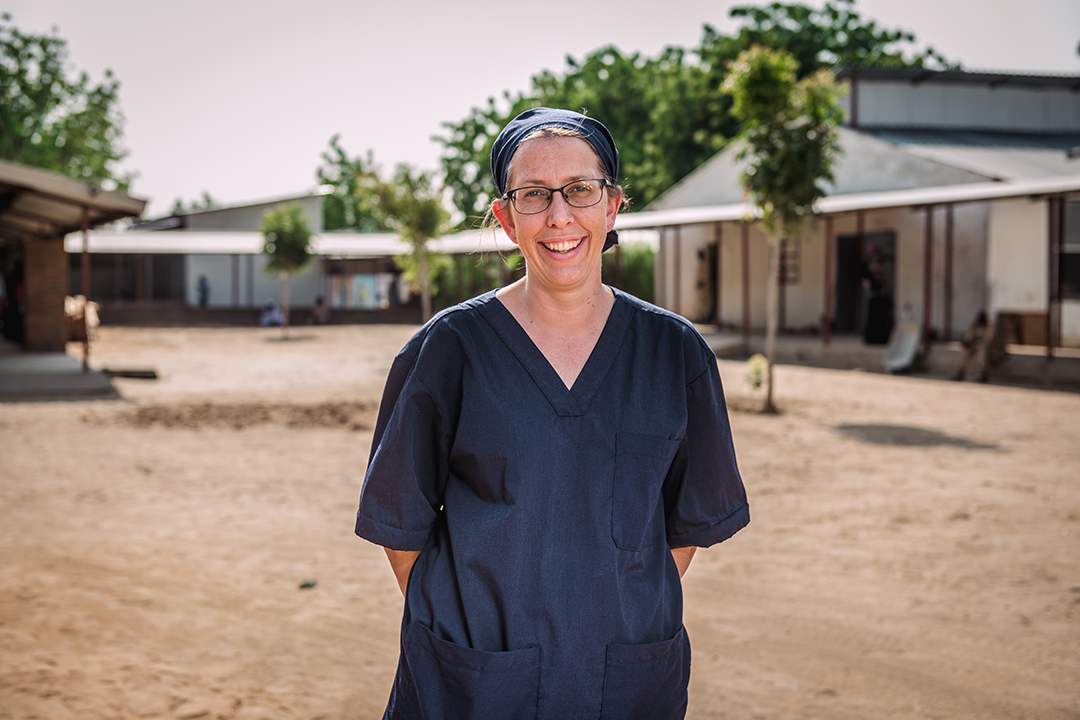
Pray with us
Please pray that pregnant Chadian women would access pre-natal care as early as possible in their pregnancy and also come into hospital as soon as possible if there’s a problem with their pregnancy or they are in labour.
We thank God that improving the environmental sustainability at G2 Hospital also means that pregnant women and their babies can benefit from improved treatment conditions.
An important lesson that I think climate change is teaching us, is that ‘caring for the environment’ is directly related to ‘caring for people’. Or in other words, being a good steward of God’s creation also translates to loving your neighbour. ‘Green’ initiatives have often been viewed as something based primarily on a concern for the non-human elements of creation and perhaps only obliquely related to a concern for our fellow humans. Now we are beginning to grasp that what is genuinely good for ‘the environment’ is also genuinely good for us.
I hope this story will help guide your prayers for COP28. For more prayers during the course of the conference, head to the BMS Facebook page and give us a follow!

Words by Laura-Lee Lovering, BMS Creation Stewardship Co-ordinator
*OECD Survey on Environmental Policies and Individual Behaviour Change (EPIC), 2022, 2011
**USAID Climate change and Gender Fact Sheet, https://www.oecd.org/dac/gender-development/46460915.pdf

